Travel to South Africa: What are the Current COVID Restrictions?

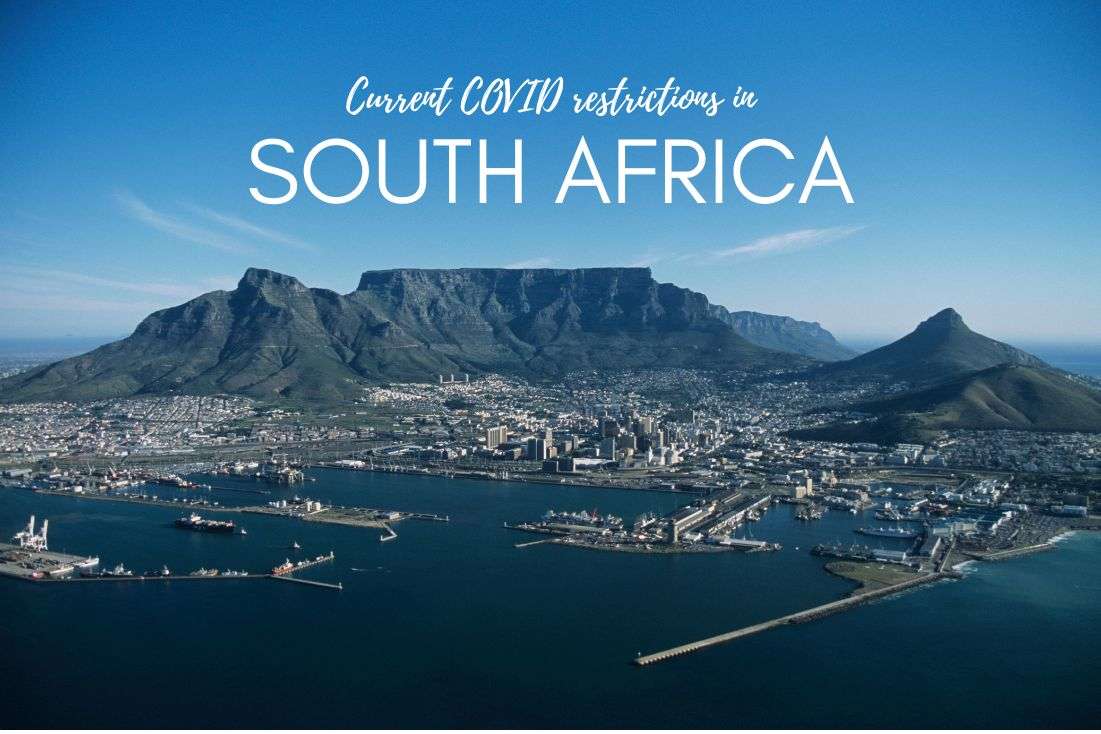
As the Covid infection rate of most European countries is on the rise once again bah!, including our very own Czech Republic, most African countries are decreasing woop! South Africa, with its 230 daily new cases (as of October 31, 2021), sounds like a pretty good destination at the moment, especially if you compare it to, say, the UK with a whopping 40,000 new cases that they are currently experiencing every day (on a serious note though, good luck guys!!). So naturally, you want to grab your passport and head over there, right? I mean, if you're from the northern hemisphere, it’s time to escape the winter anyway!
Since November 2020, South Africa is fully open to international travel. But it is the Covid era, so there are a few rules. And when I say “a few”, I mean two. All you need is:
- a PCR test (a negative one, obviously)
- and a travel form.
If you’re like me, you think “easy peasy!”, but then you start thinking about the details and start getting lost in dozens of opened tabs in your browser. How old does the test need to be? What tests qualify? Do I need the results printed? Does my kid need a test? Does a digital Covid pass work?
And that’s just the Covid test. Then you find out about the questionnaire, the app, the curfew, and your head starts getting bigger and bigger and then you take a coffee break with even more questions than when you started.
You might also be interested in reading:
- 7 Things to Know Before Traveling to South Africa
- Shark Cage Diving in South Africa: 3 Stages of My Heroic Descend Among the White Sharks
- 7 Unique Places to Visit in South Africa
- Best 12 Hotels in Cape Town: Luxury, Comfort and More
- Table Mountain, South Africa: 9 Facts You Need to Know
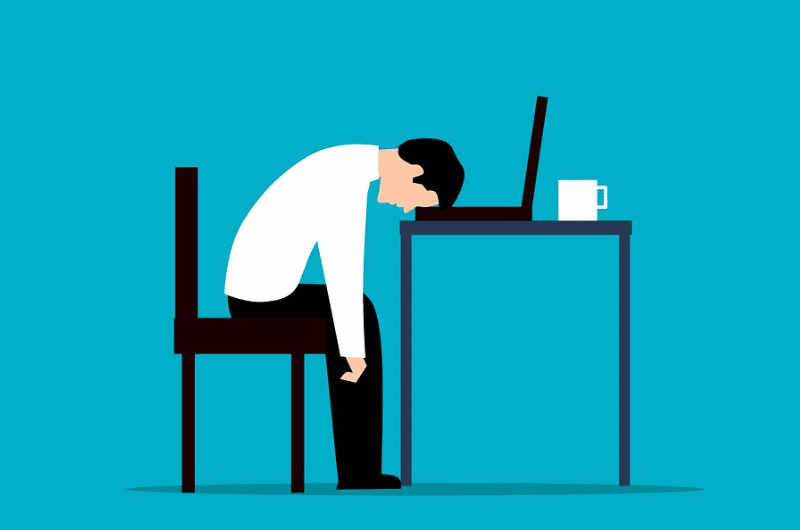
International travel to South Africa is allowed
So let’s break it down. First of all, no matter where you are from, the standard entry requirements apply. Nobody from any country is banned based solely on the Covid situation. You probably get a visa exemption, but you already checked if you are eligible, right?
Tip: Read these handy tips before you go to South Africa.
I am going to assume you are flying to South Africa for the purposes of this article. You will most likely land at OR Tambo International Airport, which operates as usual, but these other international airports are open as well:
- King Shaka International Airport
- Cape Town International Airport
- Lanseria International Airport
- Kruger Mpumalanga International Airport

First Covid requirement: PCR test
The most important thing you are going to need is a negative PCR test. Make sure it isn’t older than 72 hours from the time of departure from the country of origin. That means three days before you step foot on your first flight. The test must be recognized by the World Health Organization.
Do:
- Get a PCR test, not an antigen test.
- Get the test at a licensed medical facility, not a self-test.
- Get your test results in English.
- Print out your test result.
- Get a test even if you have been vaccinated.
- Make sure it states the name of the laboratory that ran your test, the type of test and a clear result.
- The name on the test must match your name in your passport.
Don’t:
- Get any other type of test, only PCR is accepted, and not a self-test, even if confirmed by a lab later. No rapid tests.
- Rely on a digital covid passport – these are not accepted.
- Rely on email results – printing your results will save you hassle.
- Get your small children tested – children under 5 years old do not need a test.
If you don’t have a test for some reason, you should be tested on arrival (and you should pay for that test yourself). But that won’t happen because no airline will allow you to board without presenting a test. So get tested before leaving home.
Second Covid requirement: The questionnaire
Besides the PCR test, South African officials ask that you fill out a Traveler Health Questionnaire. You should be handed the form on your flight before landing, but if that doesn’t happen, they are available at the terminal when you arrive. So don’t forget your pen. This form is meant to be able to track travelers and their travel history and basically make sure nobody runs around the country spreading Covid recklessly.
There are questions on this form about your contact information, your flight and where you plan on staying in South Africa. Then you confirm that you haven’t hugged your Covid-positive friends and don’t have a fever, and you are done. You can take a look at a pdf version of the form on this website.
Up next: Symptom screening
Another thing that will happen after you land in South Africa is a symptom screening. A health official will measure your temperature and ask about any flu-like symptoms. If you are deemed a risk, you will have to take an antigen test on the spot, at your cost.
In case you test positive, you will be required to self-isolate for 10 days. This comes with numerous rules, such as proving you can get yourself fed without leaving the hotel, having a good internet connection and a phone and providing daily reports, among others. You are also entirely responsible for the cost of your isolation stay.
Optional: The app
If you want to take an extra step of caution (or compliance, depending on your outlook), you can download the COVID Alert South Africa, an app that tracks you during your stay and lets you (and the government) know if you come in contact with Covid-19. They can then let you and all your contacts know that you need to get tested. The app is available for free on Google Play and on the Apple Store, and uses Bluetooth technology, so it won’t eat your data.
Consider this: Travel insurance for South Africa
Speaking of Covid-induced travel costs, it is a good idea to choose your travel insurance so it covers the extra costs should you need them. It is a huge pain in the you-know-what to go for a vacation, get stuck in isolation (or worse, a hospital!), AND pay for it all out of pocket.
The conditions of insurance companies vary widely, so read up beforehand. For example, in my country, the Czech Republic, most insurance companies cover Covid-related health costs for you unless you are traveling to a high-risk country. If you ignore your government’s recommendation and do travel to a country considered high risk, they basically say “screw you, you asked for it”. And no matter how they rate the country, nobody will pay for your Covid tests, those are always your responsibility.
Generally speaking, if you want your insurance to cover extra costs like hotel quarantine, you will for sure have to pick a more expensive insurance option, and there might not be too many or any at all offering this option. Read the fine print. Insurance companies are not your best friend, if you know what I mean. They say they are, but when the time comes to actually pay up, they can give you the cold shoulder.
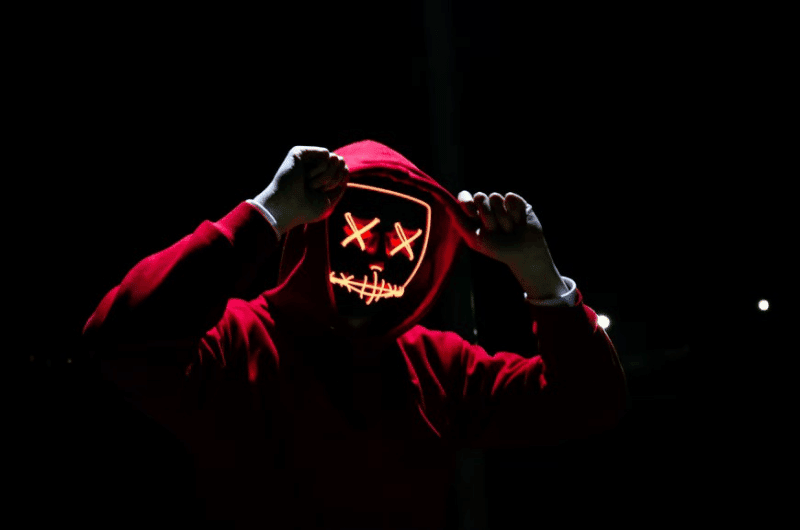
Travel restrictions within South Africa
You have made it into the country! What could go wrong, right?
Tip: Always, always check the Health Authority’s website for up-to-date information on regulations and requirements. They can change at any moment and this is the one website that seems to really keep up with the current regulations. I found tons of websites with information that was not showing the latest developments. Even the government's FAQs are not up-to-date!
South Africa is currently on lockdown level 1, which is the lightest level. Here are the most important points to keep in mind:
Curfew
Forget about partying all night, South Africa currently has a curfew from 12 AM to 4 AM. No, you can’t go to a club at 11:55 PM and stay inside until dawn and then happily walk (stumble) out. You are required to be in your place of residence during these hours. And who are we kidding, no social distancing ever happens at 2 AM. Just get a good rest so you are ready to be a tourist from bright and early in the morning. Also, night clubs are closed.
Tip: If your flight lands or is scheduled to leave during curfew, you will not get in trouble if you are in a taxi on your way to your hotel or to the airport. But you might get checked by the police, so have your boarding pass, and any other proof of why you are breaking the law, on hand.
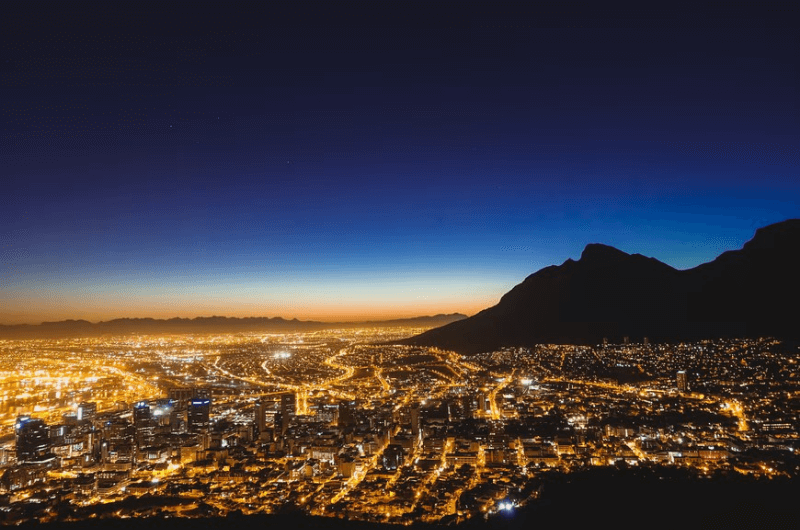
Face masks
Want a weird tan? Awesome, because South Africa has a mandatory face mask rule. In all public areas, you have to wear a mask. Unless you are a child under 6 years old, you must cover your mouth and nose indoors and outdoors if it is a public area. You can get creative though, the face mask can be diy, a scarf or anything really.
You know one public area where you don’t have to wear a mask? Under the surface of the ocean! Like me, when I was staring into the face of a shark trying not to throw up. Another time you don’t have to wear a mask is during vigorous exercise, as long as you keep social distance. Anyone want to sprint to lunch with me?
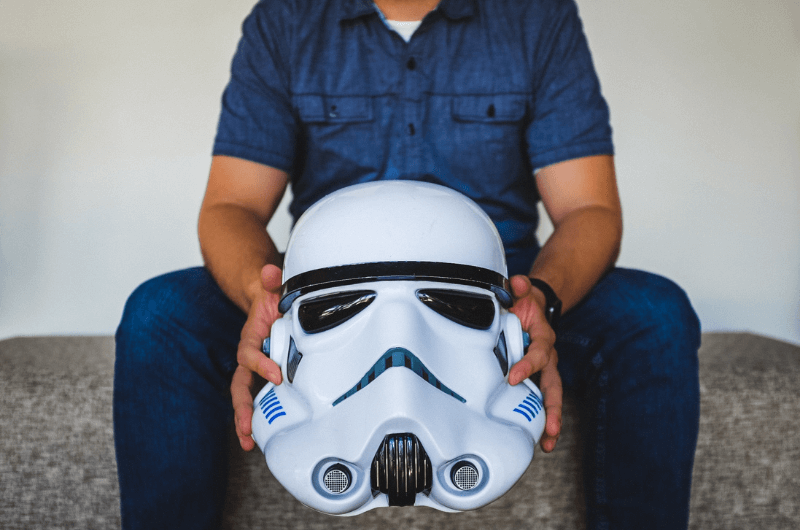
Public transportation
Wear a face mask or you won’t be let on the bus. Or taxi. Or anything that transports you places. If you are going more than 200 kilometers, that qualifies as long-distance travel. The only difference there is that the vehicle can only be filled to 70% capacity. You still have to wear a mask. Short distance travel has no limits on capacity.
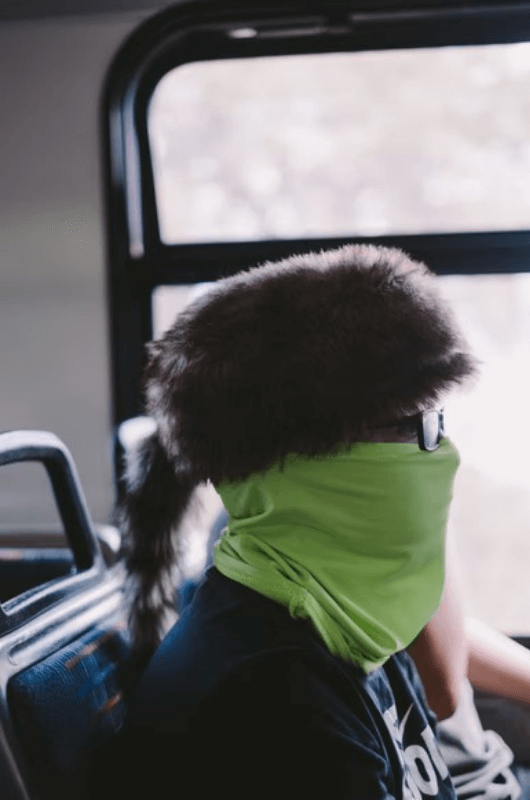
Stores, offices, museums, etc.
As mentioned, you need to wear some type of face covering in all indoor and outdoor spaces. There will usually be an employee assigned to the door checking your compliance with this requirement. You will be turned away if you don’t have your mouth and nose covered. The owners face large fines if anyone without a mask is caught in their establishment, so nobody is in a hurry to risk that.
There is also a regulation in place limiting the number of people allowed in any establishment based on the area (size) of it, so that employee checking if you are wearing a mask might not let you in if the capacity has reached its limit.
Everything non-essential must closed at 11 PM at the latest. Restaurants are not essential, no matter how much you want another beer. Night clubs are shut altogether.
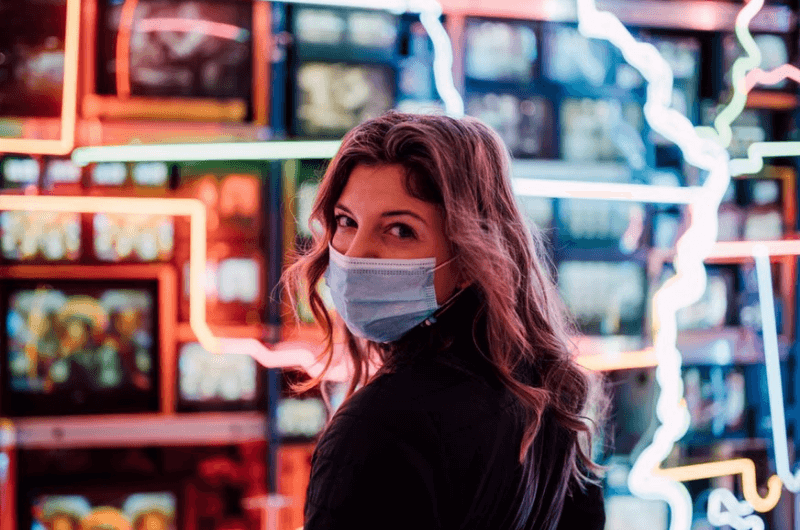
Hotels
Hotels are operating at full capacity, no limitations there. Management has to ensure guests can keep a safe 1.5 meters (5 feet) distance apart, and, as you might’ve guessed by now, face masks are mandatory in all areas except for your own room.
Restaurants
At level 1 lockdown, everything remains open. You can enjoy your coffees and meals all day long. Restaurants do have to close by 11 PM, face masks must be worn unless at the table and patrons need to be able to keep their social distance of 5 feet. This usually means some tables have been removed from the area to make more room between people. No alcohol can be sold after 11 PM anywhere.
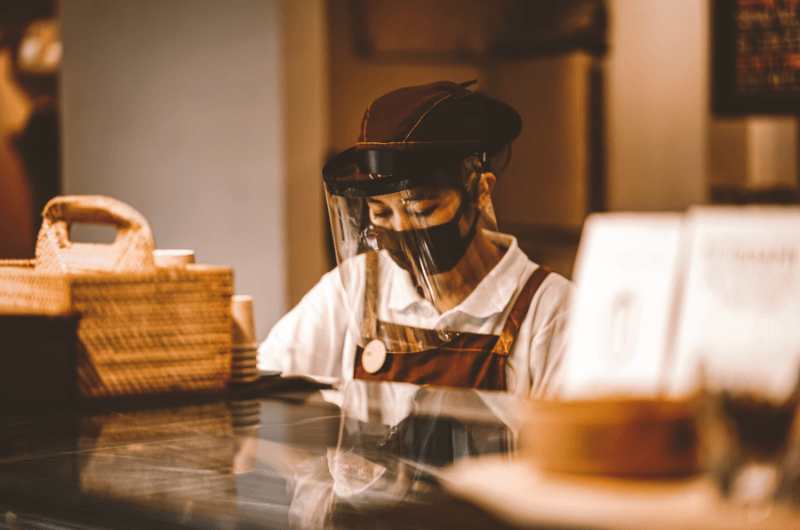
South Africa exit requirements
Don’t think you’re off the hook just yet. To leave South Africa, you also have to meet some requirements. Most of them will be imposed by the country you are traveling to, so expect a PCR test at the very least.
An airport official will very likely shoot you with a digital thermometer at one point or another, and they will ask you to fill out an exit health form. Of course, you are wearing a face mask during all of this.
Tip: Get inspired by our list of 7 unique places to visit in South Africa.


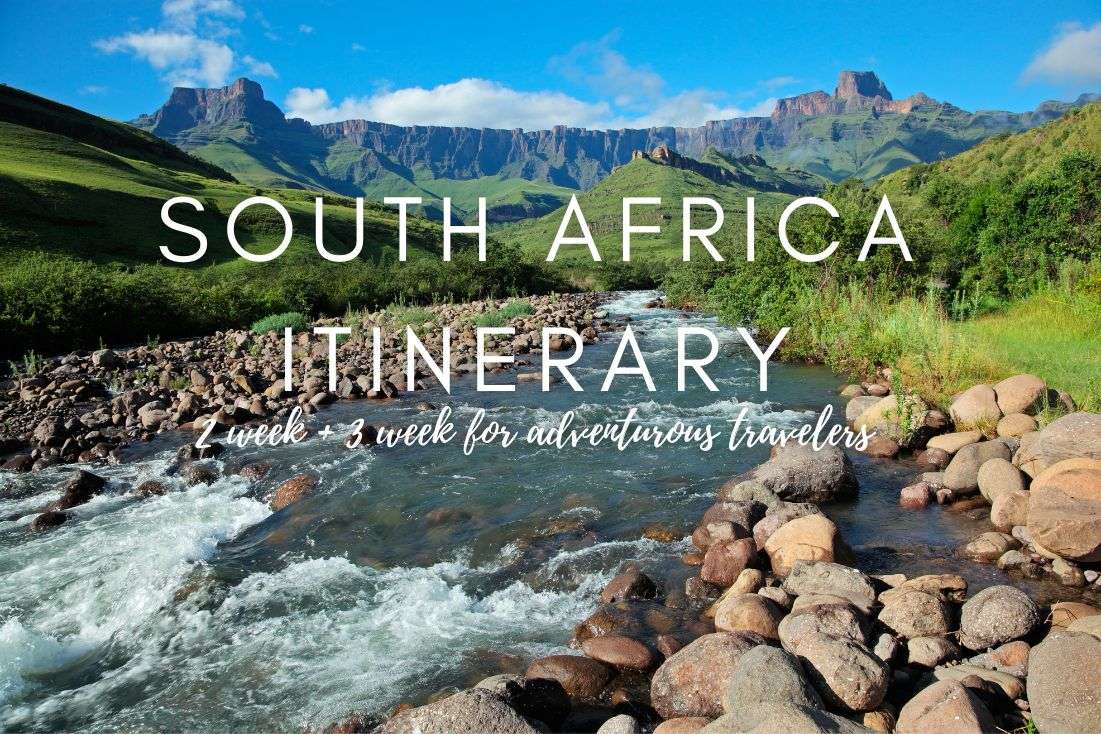
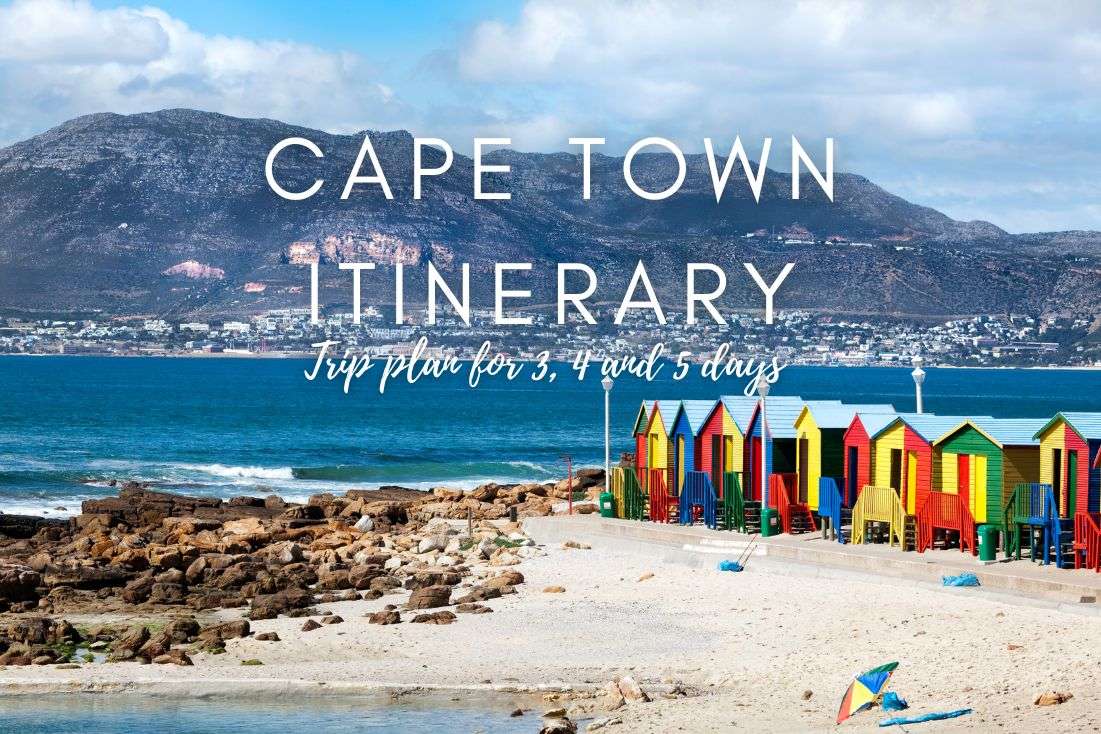






Comments | Thoughts? Give us a shout!